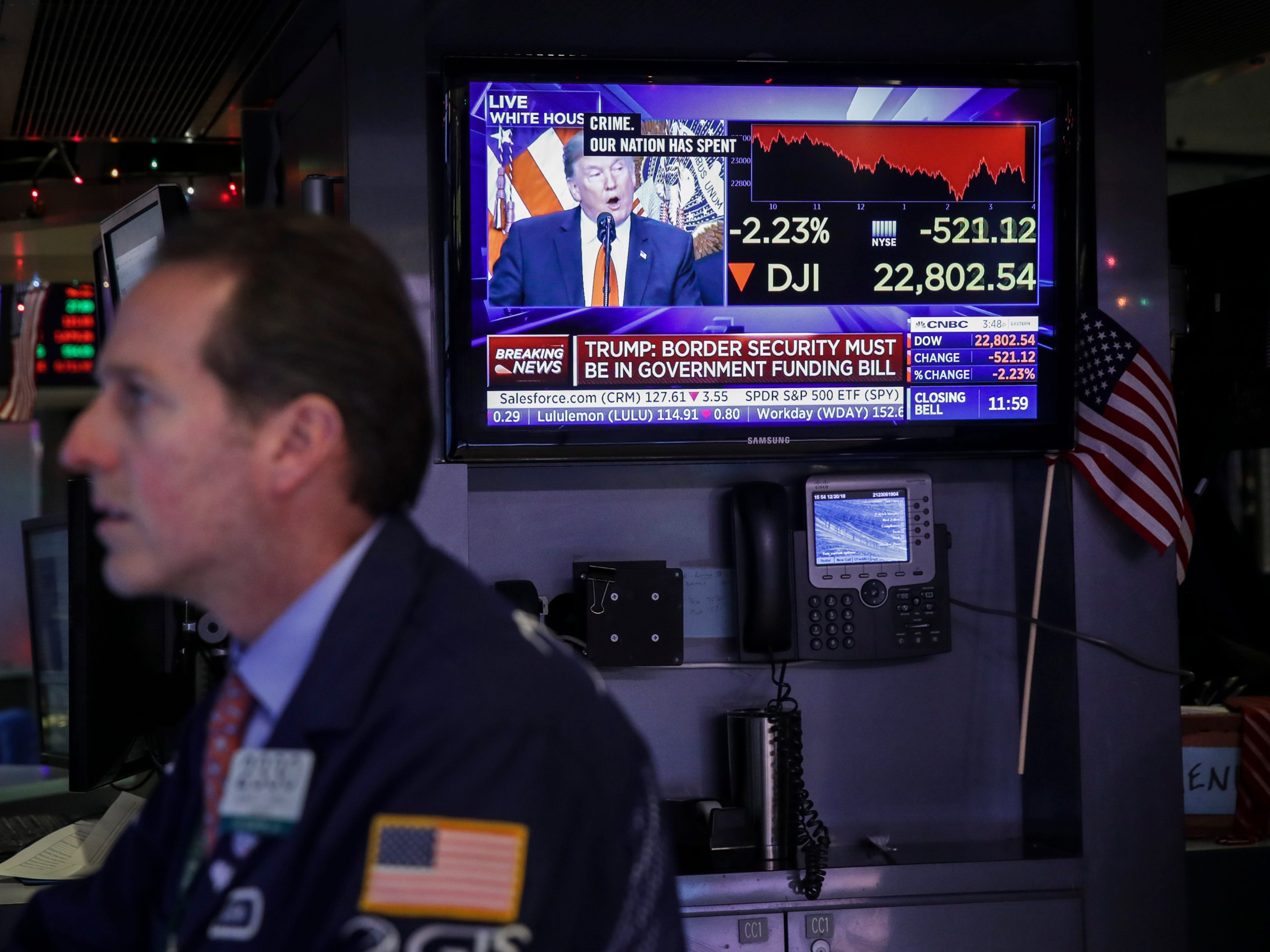The stock market could be a key check on Trump's agenda in his 2nd term

-
Trump viewed the stock market as a report card in his first term and watched its performance closely.
-
A negative reaction by the market to his policies could prompt a re-think by the administration.
-
One market strategist says new tariffs could spur a negative stock-market reaction.
With President-elect Donald Trump set to begin his second term in January, the stock market could be an important check on the decisions he ultimately makes.
Trump's ability to enact new policies has been greatly enhanced with Republicans in full control of Congress, and he's already been exerting pressure on lawmakers to fall in line with his agenda. Those members of Congress appear keen to play ball.
The market, therefore, might be an important counterbalance to Trump's control of Washington. If his past tenure as president is any indication, he will be alert and sensitive to negative market reactions to his policies.
During Trump's first term, he showed that he viewed the stock market as a real-time indicator of how he was doing, taking credit when it was up and diverting blame when it was down.
Trump "demonstrated a keen focus on the stock market as a 'scorecard' for his administration's success," Mark Malek, chief investment officer at Siebert, told Business Insider.
Perhaps the best example of this came on March 13, 2020. Trump sent the late Fox News host Lou Dobbs an autographed Yahoo! Finance chart of the Dow Jones Industrial Average, which had soared nearly 2,000 points that day in response to Trump declaring COVID-19 a national emergency.
The moment demonstrated how Trump views the market's relationship to the president's performance, and observers say it's possible that if he were to announce or enact policies that spark a sharp decline in stocks, he could adjust his approach.
Yardeni Research strategist Eric Wallerstein told Business Insider that certain policies that would add to the fiscal deficit and send bond investors into a panic might qualify as an event that could prompt a rethink from the administration.
"Yields would blow out, the stock market would respond unkindly to that, and then maybe he would reverse course."
That view echoed Jeremy Siegel's, with the Wharton professor noting shortly after the election that the President-elect will probably tread lightly when it comes to the markets.
"Both the bond market and the stock market are going to be really big constraints on many of Trump's programs," Siegel said.
This dynamic is top of mind for investors heading into next year given that some of Trump's campaign promises, like mass deportations of immigrants and universal tariffs of 10%-20% on imports, could be met with dismay by stock investors. That's because economists say the proposals could spark a rebound in inflation and limit the Federal Reserve's ability to keep cutting interest rates.
Breaking news
See all






